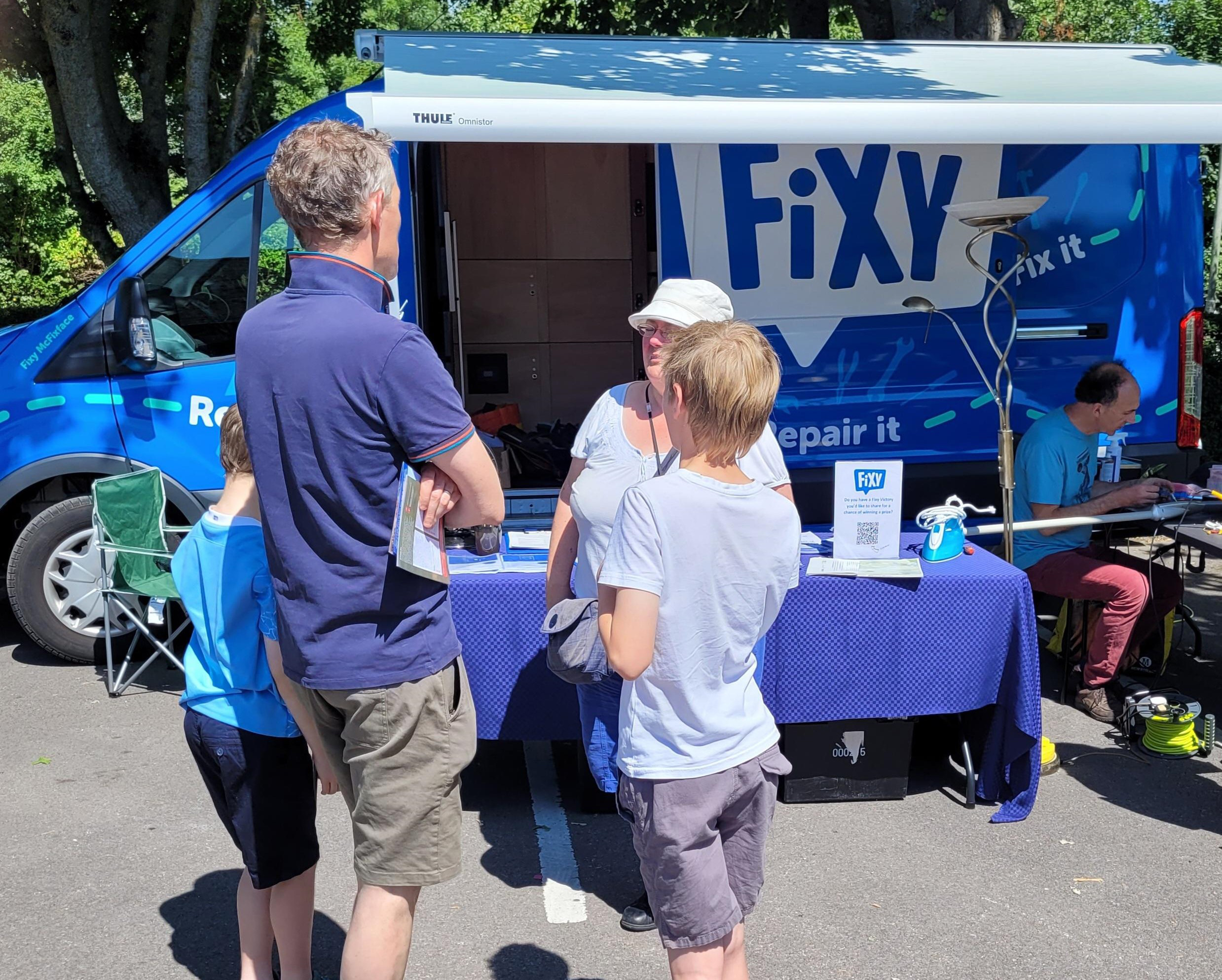‘Fixy’ is made up of a project coordinator and a highly-visible, branded van of tools, which travel across Somerset; hosting pop-up repair events and attending repair groups. Led by environmental consultancy Resource Futures and Somerset Waste Partnership (SWP), this new pilot scheme has been funded by the Ecosurety Exploration Fund. The aim is to promote repair and reuse, provide the tools for electrical repairs, and offer electrical safety testing. As well as putting more life in their electricals, Fixy has also inspired residents to consider establishing repair cafes and volunteering themselves.

“We are trying to move the conversation in Somerset beyond recycling and on to reuse, and Fixy has been a key part of that. What we have seen so far through Fixy is that the interest and appetite is there. People will embrace repair and reuse, even in the challenging field of electricals, if you can overcome the barriers to access.
“Our aim has been to move repair and reuse from ‘niche to norm’ and even in this relatively short space of time it feels like we have taken significant steps in that direction,” says Mickey Green, Managing Director of SWP.
Bridging the digital divide is another of Fixy’s objectives. Alongside raising the standard and visibility of electronics repair and reuse, Fixy also has its sights on addressing digital poverty. Electric and Electronic Equipment (EEE) is diverted away from waste streams and back into the local community.
Repair and reuse back on the map
The pilot has now been running for eight months, and in that time Fixy has attended 58 events, reaching 2,100 people. A survey carried out by Resource Futures revealed that (of those surveyed) over half understood more about the importance of repair and reuse, 96% were more likely to get a broken electrical item repaired, and over 70% said they were more likely to buy refurbished or second-hand electrical items.
In terms of next steps, Resource Futures plans to document the rollout of Fixy in a blueprint of best practice and learnings. Local authorities will then be able to adapt and implement Fixy in their own rural communities.
Sarah Hargreaves, Behavior Change lead at Resource Futures, said: “A key element to this pilot project is that we wanted it to be replicable and scalable for other councils up and down the country to adopt similar projects.
“Fixy has shown that despite the scale of the challenge it is possible to change people’s awareness and perceptions. It’s fantastic to hear people say that Fixy has made them feel better informed about where and how they can get things repaired, and we hope other regions can benefit from the findings from this pilot work through our blueprint.”
The Fixy pilot scheme was financially supported by the Ecosurety Exploration Fund, which was launched in 2019 to invest in projects that could reduce the environmental impact of packaging, batteries or EEE through innovation or research in the UK.
“We are really pleased with the results of the Fixy pilot scheme so far which demonstrate the power of providing access and building awareness,” said Gareth Morton, Ecosurety’s Discovery Manager about the pilot.
“At Ecosurety, our purpose is to accelerate change towards an environmentally sustainable world and we are happy to have played a small part in empowering the residents of rural Somerset with the tools to make a change. We hope that more businesses and organizations will come on board to make sure that this project extends further.”
